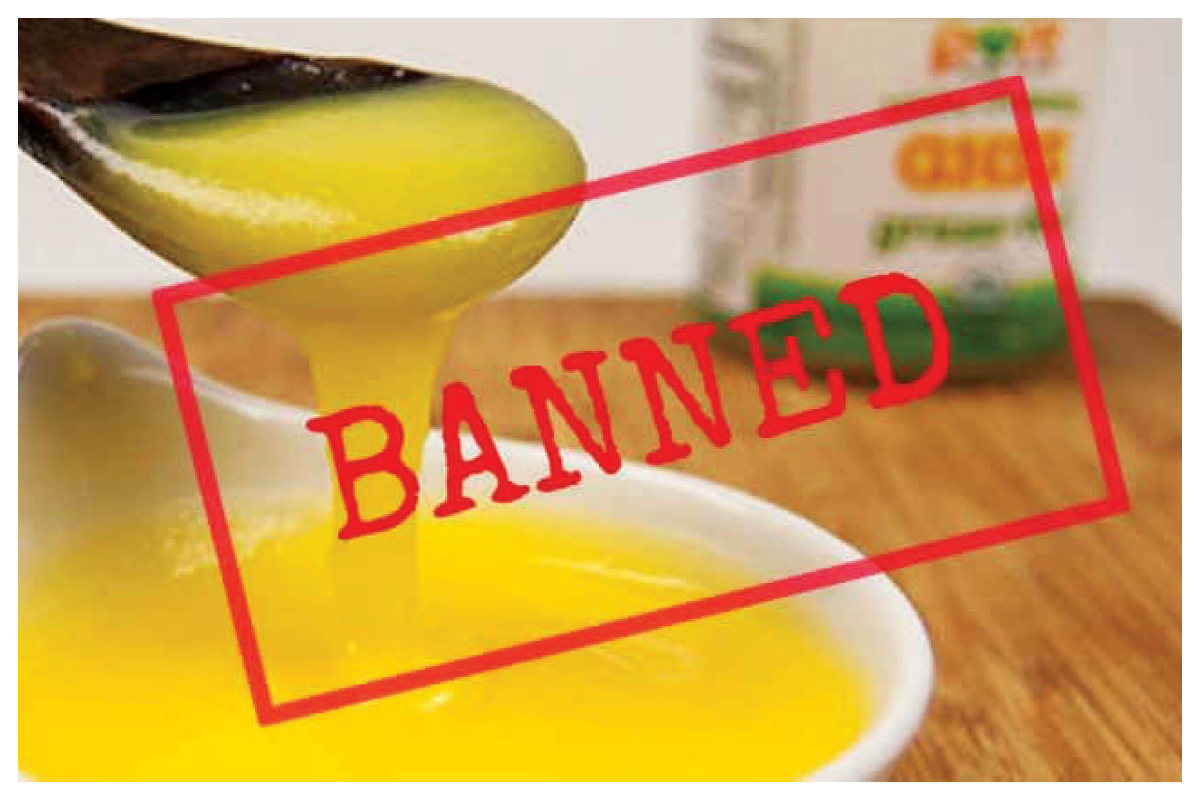
Court ratifies ban on unpacked oil, ghee
After a year’s grace period, the SFA notification continues to overwhelm wholesalers
KARACHI: The Sindh High Court has stopped wholesalers from selling oil and ghee without packing, endorsing Sindh Food Authority’s (SFA) decision to close down such manufacturing units.
The ‘endorsement’ has allowed the SFA to perform its functions in discouraging the sale of unpacked edible oil and ghee by sealing many factories and warehouses for manufacturing and storing the product. The products were previously available as loose oil and ghee in the retail market.
The court also observed that the petitioners did not hold any license while the law bars food businesses from working without registration and licences.
“Under such circumstances, we are of the view that the petitioners have no legal standing to carry on any food business within the province,” the court declared.
The court disposed of the petitions and observed, “We dispose of the petitions along with all miscellaneous applications while maintaining the de-sealing of premises in terms of the aforementioned order, while otherwise leaving the authority at liberty to exercise its powers under the act subject to such further aspects being examined at a later date in an appropriate proceeding.”
Several manufacturer and storage facility owners of edible oil and ghee had challenged the September 5, 2018 notification of the SFA. The notification had been issued on the recommendations of its scientific panel banning the sale of loose oil and ghee.
However, it had granted a one-year grace period for the voluntary elimination of such sales, after which many factories and warehouses were sealed for manufacturing and storing the product to retailers for unpackaged sale.
The petitioners stated that they were vendors or wholesalers of edible oil, as the case may be, and had been carrying on their business accordingly before the creation of the food authority, under a license granted to them by the Karachi Metropolitan Corporation (KMC).
They drew the court’s attention to copies of certain licenses issued by the KMC as well as the Bureau of Supply and Prices and various Market Committees.
Their counsel argued that the imposition of a blanket ban on the sale of edible oil in open form was bereft of a rational basis, as the central purpose of the SFA Act 2016, was to ensure a proper standard of food in the public interest, which could be served through formulating and implementing standards that met the basic requirement of a ‘safe food.’
The edible oil sold by the petitioners was ‘free of adulteration’ and was ‘fit for human consumption,’ hence satisfied that requirement.
A laboratory test report April 19, 2022, indicated that their products met the standard prescribed by the Pakistan Standards Quality Control Authority (PSQCA), the premises of the petitioners had nonetheless been sealed by the functionaries of the SFA in pursuance of the impugned notification, albeit a grace period of 5 months had been ordered by the food authority itself on April 3, 2019.
The counsel argued that the SFA had no powers to seal the petitioners’ premises that too, without any formal sealing order being issued.
It was pointed out by the counsel that Chinese Restaurant Lung Fung in Lahore was sealed which purported to confer power upon a Food Safety Officer to seal premises. The apex court in 2021, on the appeal of a Chinese restaurant, had declared the power to seal premises was unconstitutional and illegal in the absence of any legislative policy or guideline. The petitioners’ premises were sealed by the SFA.
On September 15, 2022, during the hearing of the petitions before the bench headed by Chief Justice Ahmed Ali M Shaikh, the provincial law officer stated that by extension of the principle laid down in the judgment of the Supreme Court in the Lung Fung Chinese Restaurant case, the Sindh Food Authority had no power to seal any premises.
Rajesh Kumar Khagaija, counsel for the SFA was not in a position to controvert this position to show that the power subsisted. Neither Khagaija nor the functionaries of the Authority appearing before the court was able to show what quality standards, if any, have been devised concerning edible oil.
Under such circumstances, the court had directed the food authority to de-seal the premises of the petitioners, letting it exercise all other powers vested in it for the impugned notification.
The court in its verdict noted that the so-called recommendation of the scientific panel was bereft of any real scientific analysis and a bare reading of the impugned notification reveals its wording to be questionable in certain respects proceedings, also raising doubt as to its efficiency.
Catch all the Urban Insight News, Breaking News Event and Latest News Updates on The BOL News
Download The BOL News App to get the Daily News Update & Live News.












 Read the complete story text.
Read the complete story text. Listen to audio of the story.
Listen to audio of the story.